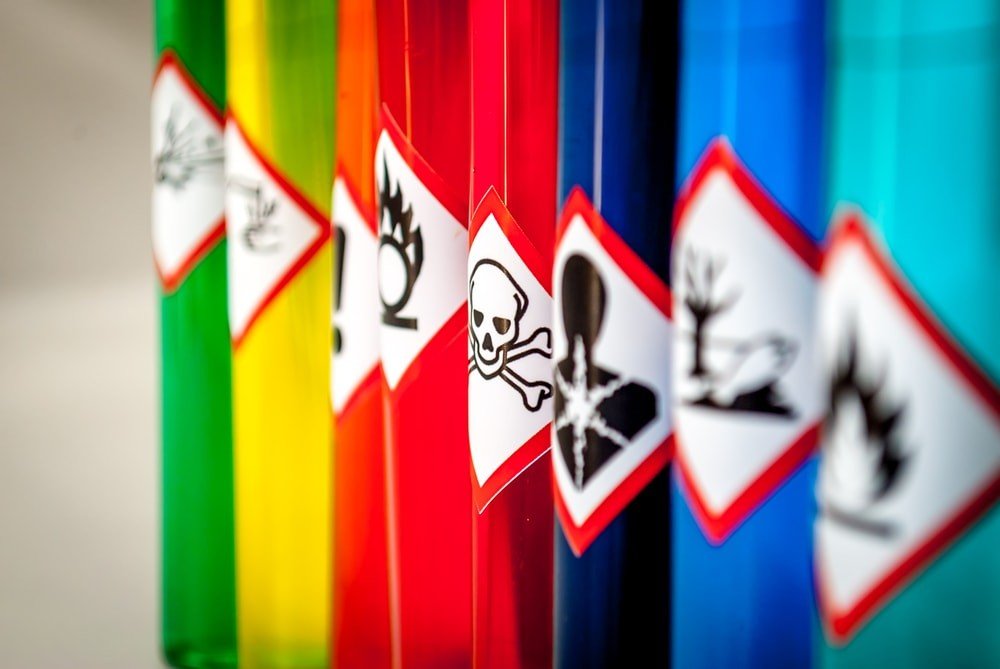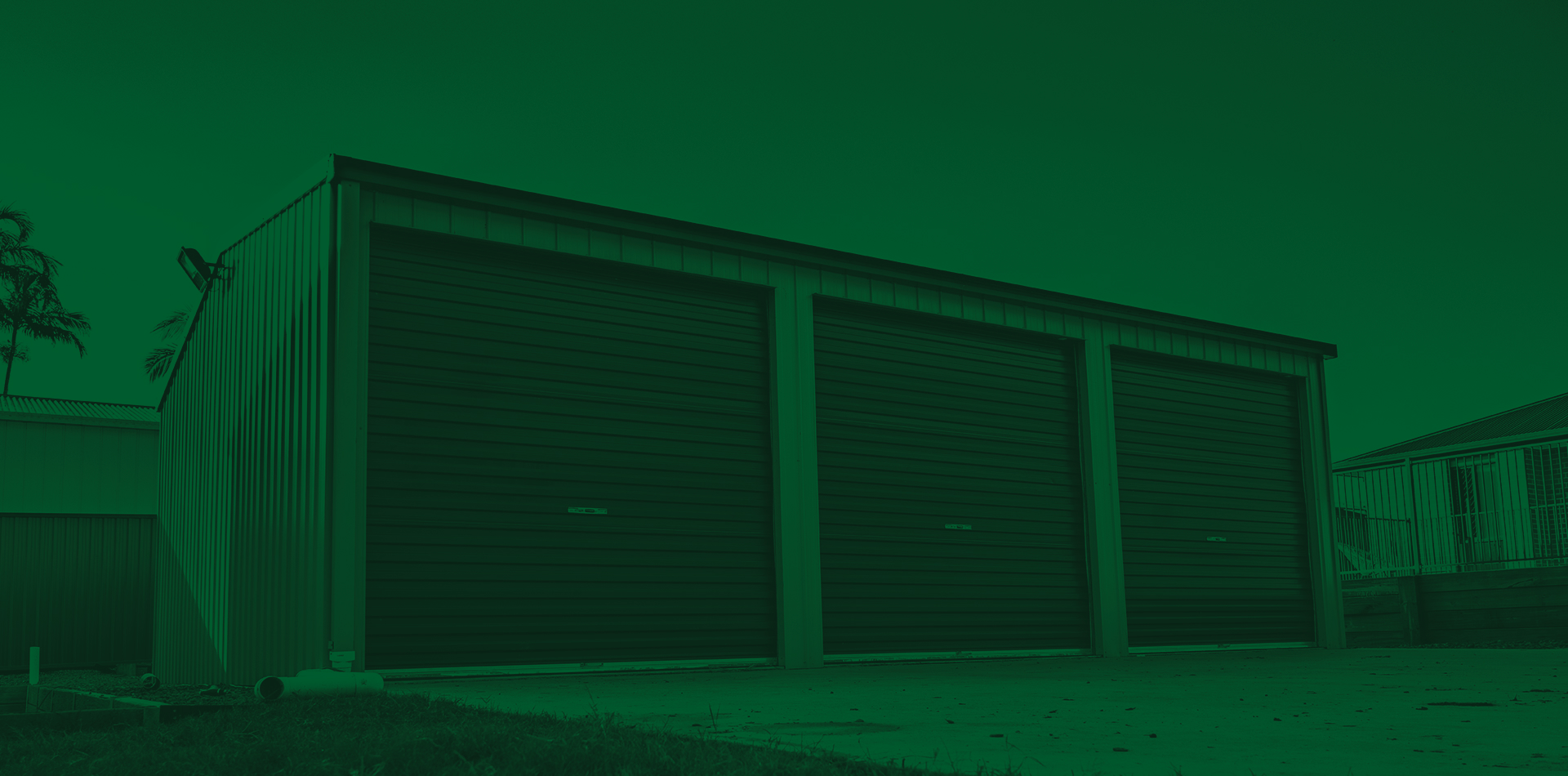
Safe Practices for Storing Chemicals in Your Farm Shed
Most farms have a range of chemicals onsite—from machinery fuels and oils to fumigants for controlling pests and weeds, all of which can be hazardous to health if not handled and stored safely.
In this guide, we take a closer look at the types of chemicals likely to be found in a typical farm shed, the dangers they can pose if they are not handled correctly, and a range of useful tips for storing them safely to prevent risk to human life or damage to property.
Types of agrichemicals found on farms
Common agrichemicals found on a farm can include fuels, solvents, pesticides, herbicides, fungicides, fertilisers and veterinary chemicals. Each chemical has side effects, which must be considered when handling the good.
- Fuels
Fuels can release flammable vapours in confined spaces and cause fires and even explosions if stored incorrectly.
- 2. Solvents
Solvents can cause irritation and rashes from contact with the skin through to serious damage to organs such as the liver and kidneys if exposed over a long period of time.
- 3. Pesticides
Overexposure to insecticides can cause sweating, headaches, blurred vision, sleepiness and vomiting.
- 4. Herbicides
Prolonged exposure to herbicides can cause burning in the eyes, nose and throat, nose bleeds, coughing, blisters on the skin and muscle and stomach cramps.
- 5. Fungicides
While not normally considered toxic, fungicides can cause skin and eye irritation, coughing, sneezing and dermatitis.
- 6. Fertilisers
Fertilisers can cause skin irritation, nitrate poisoning if swallowed and a potential explosion if stored unsafely due to the ammonium nitrate they contain.
- 7. Veterinary chemicals
Many substances used in animal husbandry can have hazardous effects on those administering them including skin irritations, allergic reactions, lung damage, carcinogenicity and acute toxicity.
Hazardous chemicals are labelled according to the Globally Harmonised System of Classification and Labelling of Chemicals (GHS). This is a new system of chemical classification and hazard communication created by the United Nations that replaces the old system for classifying workplace chemicals.
You should always read the label on the container carefully before opening or using agrichemicals and pay attention to any warning symbols you find on them.
Safe chemical handling
Chemicals can be absorbed via skin or eye contact, inhalation or ingestion, so the following rules should always be observed when handling chemicals on the farm.
- After handling chemicals, always wash your hands and arms thoroughly with soap and hot water and shampoo your hair when showering.
- Remove soiled clothing and footwear before entering your home.
- Never eat or drink in areas where chemicals are being used or stored.
- Wash your work clothes separately from all your other clothes, using detergent and hot water.
- Never enter a field that has been posted with a “re-entry” warning sign.
- Don’t use water in irrigation systems for drinking or for washing food, as it could contain chemical residues.
- Never put hazardous chemicals in unmarked containers or food and drink bottles or jars.
- Don’t burn hazardous chemical bags for fuel, as they can give off poisonous fumes.
- If an accident happens when using hazardous chemicals, follow the first aid directions on the container’s label.
- If pesticides are sprayed or spilled on your body, wash the affected area immediately in the nearest clean water.
Safe chemical storage
Most farmers store their chemicals in their shed, whether it’s a multi-use barn or a dedicated storage building. For reasons of security and to keep hazardous substances away from children and animals, a purpose-built structure is preferable, ideally situated apart from other buildings and secured against unauthorised entry.
The degree to which attention must be paid to correct storage will depend on the nature of the chemicals being stored. Most chemicals used on the farm have the potential to cause harm if improperly handled, so the best course of action would be to err on the side of caution.
To store chemicals safely, the following factors need to be considered;
Proximity
The proximity of chemicals to other chemicals will require research or experience knowing which substances may react with others if stored in close proximity. Compatibility and separation distances can often be found on labels, in safety sheets or by asking the supplier.
Quantity
Because most chemicals have a certain shelf life, the amount of chemical being stored and the rate of usage is important. Only purchasing what you need rather than stockpiling can minimise disposal costs and reduce the level of storage risk.
As a rule, you should use a designated storage area if storing more than 100 kg or litres of chemicals and if storing more than 1,000 kg or litres, you may also need to ensure you are conforming to specific Australian Safety Standards.
Location
It’s important to locate your storage shed in a safe place. This means ensuring it is not located in a zone that is prone to flooding or in a heavily treed area if your farm is in a bush fire zone. It must also be safe from impact and setting concrete bollards in front of it can prevent accidental damage from vehicles or farm machinery.
Ventilation
Some chemicals need to be stored within certain temperature parameters. Substances such as petrol can give off fumes which can accumulate in enclosed spaces. It’s important for your storage area to have adequate cross-flow ventilation to regulate temperature and allow fumes to dissipate naturally.
Drainage
If storing liquid chemicals, your storage shed should have the ability to safely control spills. This is best achieved with a drain which would channel the spilled chemical into a sump area beneath the cement floor where it can be contained without escaping into the ground. The cement floor should also have door sills and walls to a suitable height to provide a bund (containment area).
Security
Keep dangerous chemicals out of harm’s way, not only from those who might use them for illegal purposes, but also from little ones who might see them as toys or worse still, food items, particularly if they are not labelled or are stored in food or drink containers. Your shed should have a secure door with a lock and be clearly signposted as dangerous if hazardous chemicals are being stored there.
Emergency response
Your shed should also contain the means to minimise harm in the form of an emergency response kit. This should include a fire extinguisher (appropriate for the type of chemicals being stored), a first aid kit to treat poisoning or burns, a clean up kit for spills, and a supply of clean water.
Other useful tips
- Install adequate lighting so labels can be easily read (the recommended level is 200 lux).
- Rotate chemical stocks by always using old stocks first.
- Store flammable or combustible substances well away from heating or ignition sources such as heating appliances, light switches, mobile phones or welders.
- Don’t store flammable substances near exits, as they could prevent your escape in the event of a fire.
- Store chemicals on shelves or in cupboards to reduce the risk of breakage or spillages.
- Don’t store chemicals higher than 2 metres above floor level to reduce the possibility of breakages.
- Don’t store liquids above solids.
- Train workers you employ in the safe use and storage of chemicals.
- Keep chemicals in their original containers and don’t pour them into smaller bottles.
- Don’t remove labels from containers.
- Keep a folder containing all safety information in your shed and clearly display the emergency number to call in case of chemical poisoning or injury.
The right shed for the job
If you’re planning to construct a purpose-built shed for safely storing your agrichemicals, Titan Garages has what you need. Our range of sheds are built using 25% thicker steel, making them easier to assemble and stronger than most on the market.
They’re also water tight, highly wind resistant and significantly fire-resistant, with no release of smoke, carbon dioxide, or VOCs (Volatile Organic Compounds) in the event of a fire. Fully lockable and available in a range of colours to complement other outbuildings, you can see our full range of sheds here at Titan Garages. Contact us today.

